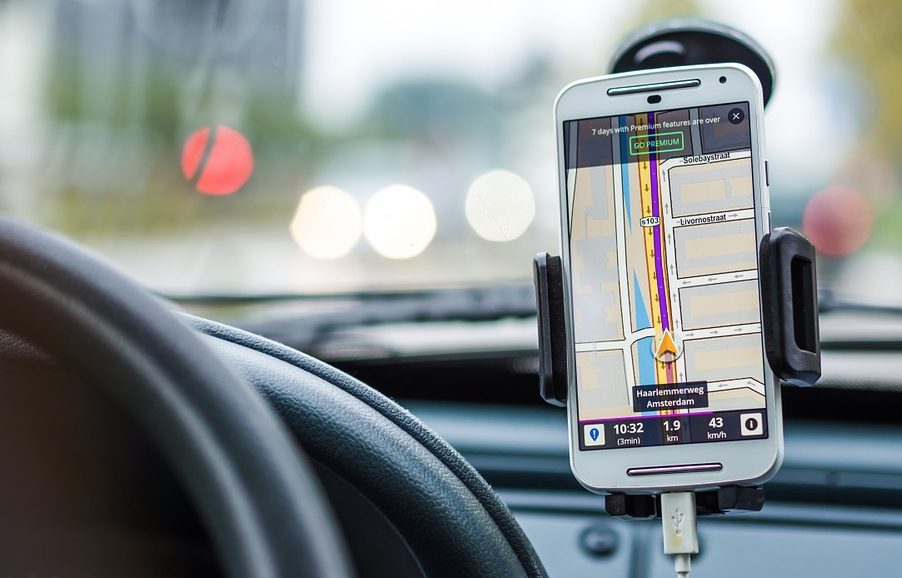By Jeremy Nicholds, CEO of Judopay
From app-based parking, street side car hire and pay-by-mile insurance, all the way to driverless cars, the world of tech is changing consumer expectations in transit as well as many other markets. Remember when you used to call a taxi firm the night before you wanted to travel, arrange a time for pick up at a fixed address and hope it would turn up? This is now history.

The ride sharing giant, Uber, amongst others, has fundamentally changed transit. The consumer enters the app, requests a ride and is then (almost) immediately picked up by a driver; the driver then delivers them via the quickest way possible, with ratings and payment handled through mobile devices.
However, rarely do people think about how clever this cab hailing experience is. No one really talks about Uber’s tech stack anymore, because no one really notices it. And that’s a good thing. For the consumer the offering isn’t magical anymore, it’s what they expect. We don’t think about how it works; we just expect it to.
Consumer’s now expect that transport should be effortless and readily available at the moment they need it. They expect the mode of transport to know where they are, and almost know where they are likely to be going and expect the payment to just happen, to be almost subliminal, automated and instantaneous.
Consumer’s now expect that transport should be effortless and readily available at the moment they need it.
On demand payments, especially ones made from mobile can be fiddly, and this is where many businesses slip up. A major issue for consumers is the time it takes to complete a transaction, if a person is hailing a ride or paying for a car parking space, its often because they are in a rush to get somewhere and so a prolonged purchasing journey hinders their plans and leads to frustration.
How do companies get payments wrong?
We know that when people buy transport these days, what they’re really buying is time.
Our recent research that polled 2,000 general consumers across the UK on the psychology of mobile payments revealed that more than 1 in 6 people have abandoned a mobile payment because the process was ‘too slow’. A slow payment process is costing you money.
There are a number of factors that add time on to a customer’s checkout experience, a significant one is display issues. Small screens displaying too much or too little, fiddly buttons and unclear layouts all add to a longer checkout experience and again risk losing the customer (almost a quarter of UK consumers have abandoned a sale due to display issues).
more than 1 in 6 people have abandoned a mobile payment because the process was ‘too slow’.
Why is this happening? Because many industries that have moved to mobile have not made sure that their payments systems have followed suit.
It’s a competitive world
Customer’s cancelling orders are bad for all businesses but in the transit industry its heightened by the competitive nature of the market. Uber no doubt still leads the way in the UK as a consumer app and has dominated globally since it came on the scene in 2009, but there are a number of alternatives in the UK and elsewhere.
In a crowded market companies need to be firing on all cylinders from every aspect of the business – which includes payments. That’s why Autocab and iCabbi – the world’s leading suppliers of private hire taxi booking and taxi dispatch software systems, choose Judopay as their payments partner.
The checkout journey of a ride-hailing app needs to mirror what a customer expects from their ride. A seamless and swift A to B procedure that requires minimum effort. To do this your payment system must be built with a mobile first approach. The layout must be on one screen, with no page redirections and incorporate multiple payment methods so the user can select the payment method that they feel most comfortable using.

Most importantly the checkout journey needs to be quick. There are so many external factors that can distract a customer from completing their order that further delay coming from your side is even more damaging. In a competitive industry the last thing you want is for your payment process to let you down.
Times are changing.
Working in transport means that companies understand the importance of moving forward – however they need to make sure they take this understanding and implement it across the whole scope of the customer experience. Times are changing and the rail industry is a prime example of this. Paper tickets are on the way out and that means E-Tickets will become the norm. Therefore companies need modern systems to allow for passengers to use mobile devices and smart cards across the rail network as soon as possible.
The rail industry has been fairly successful in its adoption of payment systems that enables people to purchase via mobiles with many train providers now using electronic-point-of-sale (EPOS) solutions for on board catering. When it comes to the purchasing of tickets, The Trainline’s customer experience leads the way with its slick app making it possible for consumers to buy the tickets they need from any device in an efficient manner.
Take care of your payments before your competitors take away your customers.
The bar has been set and those providers whose apps and mobile payment systems aren’t up to scratch, need to move quickly to fix this.
Time is money and consumers remember an app that glitches in the final stages, nearly half of UK consumers (49%) aren’t likely to use a retailer’s app or website again if their mobile payments process does not work or is too slow. This is simply a risk those startups in the transit industry cannot afford. Take care of your payments before your competitors take away your customers.



